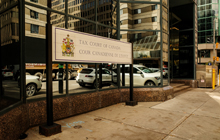When can Canadian taxpayers apply to reopen a trial at the FCA from the Tax Court?

As Canadian accountant and tax lawyer David J Rotflesich explains, reopening a court case depends upon the introduction of fresh evidence and error of law
 |
David J Rotfleisch, CPA, JD is the founding tax lawyer of Taxpage.com and Rotfleisch & Samulovitch P.C., a Toronto-based boutique tax law corporate law firm. |
IN JANUARY 2025, the Federal Court of Appeal rendered its decision on Doostyar et al. v The King, 2025 FCA 6. The FCA dismissed the appeal by the taxpayers of a decision by the Tax Court of Canada. The issue in the case at the TCC was the balance of the individual taxpayer's shareholder loan account with the corporate taxpayer.
The parties had made their discoveries, argued their positions, and the TCC reserved its decision. After preparing the draft judgment and before formally pronouncing the judgment, the TCC sent the draft to the parties and asked them to comment on any "typographical, grammatical, punctuation, or [any] similar error[s] or any omissions" and explicitly told them that this was not an invitation to revisit "the substance of his decision."
The taxpayers nevertheless asked the TCC to reopen the trial as they wanted to make further submissions and confirmed that they did not introduce any new evidence. The TCC refused to entertain that request, and the taxpayers appealed to the FCA. The issue before the FCA was whether the request to reopen the trial was warranted in this case.
Leading Authority: Sagaz, 2001 SCC 59
The leading authority in the question of reopening the trial after the decision is reserved but before the formal release is 671122 Ontario Ltd. v. Sagaz Industries, 2001 SCC 59 (Sagaz). In Sagaz, "D" was a long-term supplier for Canadian Tire.
In 1984, D was informed by a manager of Canadian Tire that D was terminated and replaced by S. It was later discovered that the manager was bribed by A, a sales agent of S. The manager was terminated and eventually convicted of corruption. D then sued both S and A. While the liability of A, the briber, was not in question, the issue at trial was whether S, the employer, was vicariously liable for A's wrongdoing.
The Ontario Court of Justice in Sagaz held that A, the sales agent, was not an employee, but an independent contractor of S, and that S was not aware of A's wrongdoing. Thus, S was not vicariously liable for A's intentional tort.
After the trial judge released his reasons but before pronouncing the decision, D and A moved to request reopening of the trial due to fresh evidence. The fresh evidence was A's new affidavit implicating S in the bribery scheme. It should be noted that A did not mention S's role in the discovery and refused to testify in the trial. It is, therefore, reasonable to suspect that A, facing full liability for the bribe, wanted to get S onto the hook.
The trial judge dismissed the motion to reopen the trial by applying the two-part test from Scott v. Cook, [1970] 2 O.R. 769 (Scott). First, would the evidence, if presented at trial, probably have changed the result? Second, could the evidence have been obtained before trial by the exercise of reasonable diligence?
On the first part, the trial judge could not say that the new evidence, if presented at trial, would probably have changed the result, only that it may have changed the result. A's credibility would be very much in issue. On the second part, the trial judge found that A's new affidavit could have been obtained before trial. Neither of the two parts was met.
The Ontario Court of Appeal reversed the trial judge's decision and ordered a new trial. The Supreme Court of Canada (SCC) later set aside the order of the appellate court and restored the order of the trial court.
The SCC reaffirmed the two-part test in Scott and upheld the trial court's decision. The SCC further reiterated a number of principles regarding the appellate court's interference with the trial judge's discretion in the conduct of a trial: first, the trial judge must exercise his or her discretion in reopening the trial sparingly and with the greatest care to prevent abuse of the court's processes; second, the appellate courts should defer to the trial judge who is in the best position to decide whether to reopen the trial; and last, absent an error of law, the appellate court should not interfere with the exercise of the trial judge's discretion in the conduct of a trial.
Application: No Fresh Evidence and No Error of Law
>Back to the case at hand, the FCA found that the taxpayers, in their request to the TCC to reopen the trial, did not present any new evidence. Instead, the taxpayers wanted to scramble in new submissions at the last minute.
In their appeal, the taxpayers alleged the TCC made an error of law, which the FCA disagreed with. The FCA further commented that the quality of the taxpayer's arguments was "fleeting," "unparticularized," and "almost an afterthought."
This case again shows the importance of proper preparation and strategy in tax litigation. What transpired in both Doostyar and Sagaz seemed like poor attempts to abuse the processes of the court.
In Sagaz, the new evidence, if presumed to be true, could have been acquired and presented during the discovery stage of the proceedings. In Doostyar, there was not even any evidence; the new submission was more of a last-ditch bid to change or delay the judge's decision.
These attempts certainly cannot save the litigants but will also be viewed unfavourably in the eyes of the courts.
David J Rotfleisch, CPA, JD is the founding tax lawyer of Taxpage.com and Rotfleisch & Samulovitch P.C., a Toronto-based boutique tax law corporate law firm and is a Certified Specialist in Taxation Law who has completed the CICA in-depth tax planning course. He appears regularly in print, radio and TV and blogs extensively.
With over 30 years of experience as both a lawyer and chartered professional accountant, he has helped start-up businesses, cryptocurrency traders, resident and non-resident business owners and corporations with their tax planning, with will and estate planning, voluntary disclosures and tax dispute resolution including tax audit representation and tax litigation. Visit www.Taxpage.com and email David at david@taxpage.com.
Read the original article in full on Tax Law Canada. Author photo courtesy Rotfleisch & Samulovitch P.C. Title image: iStock.











(0) Comments